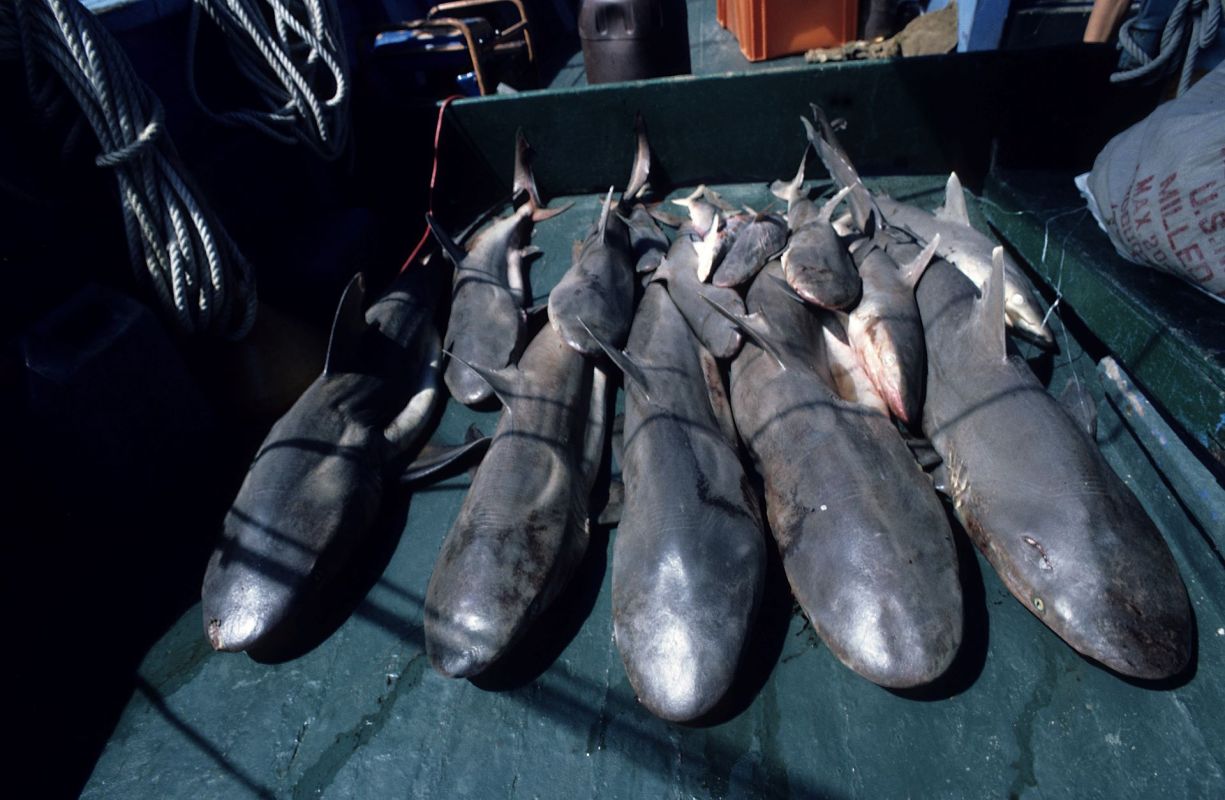Well-intentioned laws meant to curb the poaching of sharks for their fins may have actually unwittingly increased the killing of these ocean superpredators, according to new research.
What's happening?
A new study has revealed that many policies enacted around the globe to decrease shark killing seem to have actually had the opposite effect, according to a summary of the research in The New York Times. Researchers found that more than 80 million sharks had been killed globally by fishing in 2017, up from 76 million in 2012, per the Times.
The discovery comes after years of protective measures for sharks — 70% of countries and jurisdictions now have regulations to stop finning or to protect these large fish.
However, the study found that many of these policies, which required fishers to capture whole sharks, had actually increased demand for meat, The New York Times reports.
"We should have seen a signal in reduced mortality," Boris Worm, one of the authors of the study and a professor of marine conservation at Dalhousie University in Halifax, Nova Scotia, told the news outlet. "The surprising result is that we didn't."
Why is the new study concerning?
A third of shark species are threatened and about a third of all sharks killed were threatened species. Some of the most at-risk shark species across the globe include the Ganges shark, daggernose shark, and sand tiger shark, which are all critically endangered, according to the Save Our Seas Foundation.
Sharks are apex predators. As they disappear from our oceans, it will likely lead to a cascade effect, endangering other species down the food chain. They are also an important indicator of ocean health.
"All ecosystems in the ocean have evolved with sharks in them because they are so ancient," Worm told The New York Times. "When we take sharks out of the ecosystem, we find that the stability of the system is compromised."
Plus, one recent study found that large predators like sharks play an important role in carbon capture and storage. According to that research, protecting just nine wildlife species — including reef sharks — could help to extract over 7 billion tons of carbon dioxide per year, which is reportedly more than 95% of the carbon dioxide removal target set by the Paris Agreement.
Overfishing for fins and meat is not the only survival challenge for these predators. The most frequent threat to sharks is becoming by-catch (when an animal is caught accidentally and discarded). They also suffer from pollution along with habitat destruction, alteration, and damage.
On the odder end of the spectrum, some sharks may also be impacted by the chemicals, pharmaceuticals, and illicit drugs that enter our waterways. Scientists Tom Hird and Tracy Fanara studied the effects that cocaine may have on sharks who ingest it.
What's being done about the loss of sharks?
The study found some success stories — countries that created shark sanctuaries or enacted legislation to fully protect sharks were able to reduce shark kills. The small island nations of the Bahamas and Maldives led the way.
The researchers also said banning the retention of endangered and overfished species and the use of certain fishing gear could also help. However, the success of any law is dependent on the availability of law enforcement — the researchers said that shark mortality is greater in areas with less enforcement capacity.
One way you can help is by supporting non-profit shark conservation organizations like the Shark Trust and Shark Conservation Fund.
Join our free newsletter for cool news and actionable info that makes it easy to help yourself while helping the planet.









